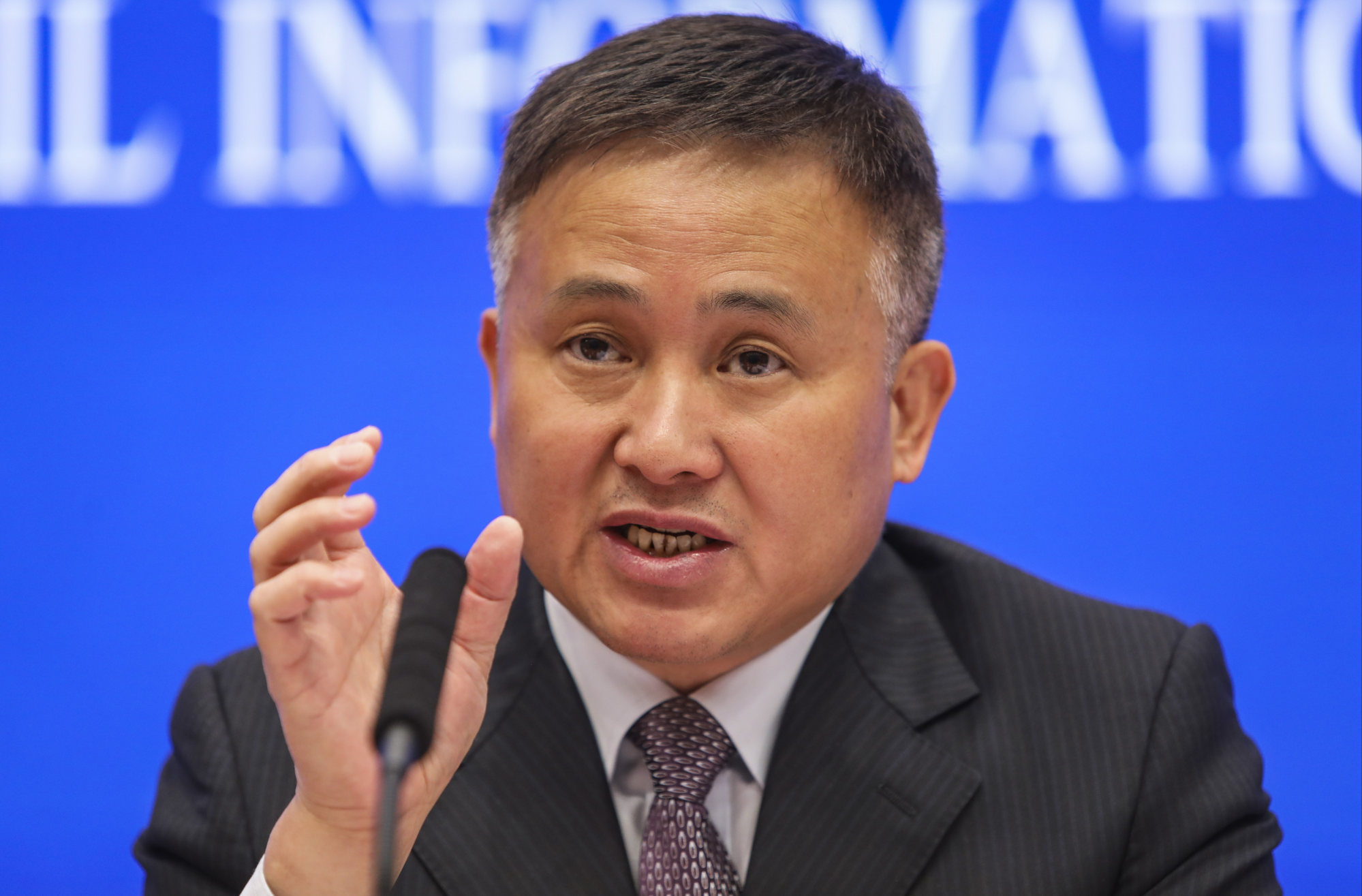
Henan bank crisis threatens to derail China’s efforts to maintain a stable yuan
- For China, a stable yuan, particularly in the face of a rising US dollar, is an important symbol of market confidence in its financial system
- Now, though, the banking crisis in Henan, where billions in deposits have gone missing, could shake investor faith and drag down the yuan if Beijing does not act swiftly
Even darker clouds elsewhere have already turned into a typhoon. In Sri Lanka, with US-dollar commodity prices already on the rise, broader economic mismanagement and poorly thought-out policies combined to trigger a collapse in the value of the Sri Lankan rupee against the dollar this year.
While acknowledging, on June 2, that US dollar strength in recent months “had gone beyond expectations”, PBOC deputy governor Pan Gongsheng also made the valid point that “the yuan has been relatively stable compared to the level of depreciation of other major currencies against the US dollar. And it has been stable against a basket of currencies.”
The fact that the yuan has depreciated versus the greenback at a slower pace than other major currencies reflects a greater degree of market confidence in the Chinese economy than other non-US major economies, but it is a confidence that needs to be nurtured.
Consequently, while higher US dollar-denominated commodity prices affect inflation in Hong Kong, the dollar peg mitigates the risk of yet higher imported inflation through the currency channel.
Mainland China has no such currency arrangement but neither does the yuan truly free float against other major currencies. “Yuan exchange rates are basically stable with two-way fluctuations”, the PBOC’s Pan said last month, and Beijing would like to keep it that way.

In that sense, there’s some similarity with a golfing analogy currency markets used to apply to the exchange rate policy of Japan’s Ministry of Finance towards the value of the yen against the US dollar – trading was akin to playing a tournament hole.
As long as the dollar-yen rate traded within certain parameters, it was on the fairway and of no concern to Japanese authorities. But if Tokyo felt that currency markets had hooked the rate too far to the left or sliced it to the right, the Ministry of Finance would infer that it had gone out of bounds and “encourage” foreign exchanges to get it back on the green.
It’s certainly the case today that, with regard to the US dollar-yuan exchange rate, currency markets remain attentive to the mood music emanating from Beijing and “adjust their swing” accordingly.
That’s a measure of currency markets’ continuing perception that if the yuan starts to look like it is heading “out of bounds”, Beijing has the means and willingness to guide players back onto the fairway. But perceptions can be jolted.
How China is responding to 3 potential traps
If international investors get spooked, money will walk, and that would make the task of keeping the yuan stable considerably harder.
With US interest rates only going up and the US dollar looking set to stay strong, a stable yuan remains in China’s best interests, but Beijing has work to do to ensure that stability continues. Sorting out the Henan banking crisis would be a good start.
Neal Kimberley is a commentator on macroeconomics and financial markets


